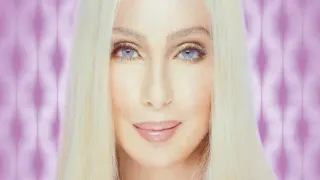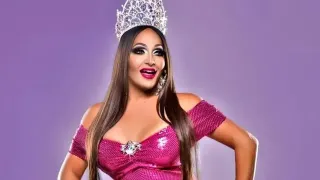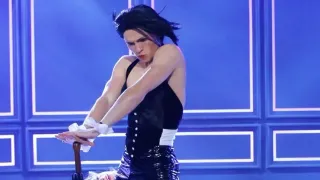
4 hours ago
Reneé Rapp Opens Up About Past Cheating and Queer Relationships on "Call Her Daddy" Podcast
READ TIME: 3 MIN.
Reneé Rapp, the acclaimed singer-songwriter and star of "Mean Girls: The Musical," has never shied away from discussing her personal life or sexuality. In a wide-ranging conversation on the August 2025 episode of the "Call Her Daddy" podcast, Rapp addressed rumors and speculation about her new album and directly acknowledged cheating on a former partner, a rare moment of candor for a queer celebrity in mainstream media .
During the interview, host Alex Cooper prompted Rapp to reflect on the themes of her latest album, "BITE ME," some of which fans had interpreted as referencing infidelity. Rapp did not shy away from the topic, acknowledging that she had "been the person who messed up" in a past relationship. She spoke about learning from her mistakes, the guilt involved, and the importance of being honest both with herself and her fans .
Rapp’s willingness to speak openly about cheating—often a taboo subject, particularly for LGBTQ+ public figures—has resonated with many. While queer representation in entertainment has increased, stories that include complex, flawed characters remain less common. Rapp’s candor challenges the narrative that queer celebrities must be role models of perfection.
In her appearance, Rapp described the emotional aftermath of her actions and discussed how writing songs like “You’d Like That Wouldn’t You” became a form of processing and self-examination. She emphasized that her music is a reflection of real experiences, not just aspirational storytelling .
"I made mistakes, and I have to own them," Rapp told Cooper. "Part of being queer, or just being a person, is knowing you’re going to mess up sometimes. What matters is how you move forward and who you become afterward" .
Reactions within LGBTQ+ spaces have reflected both empathy and appreciation for Rapp’s open approach. On social media, fans and commentators highlighted how rare it is for queer women in the public eye to discuss topics like cheating without shame or evasion. Many praised Rapp for refusing to sanitize her narrative, instead depicting the reality that queer relationships are as nuanced—and sometimes messy—as any other .
Queer mental health advocates pointed out that public discussions about mistakes and growth can help counter perfectionism and stigma often experienced by LGBTQ+ people. As one fan noted, “Seeing someone like Reneé talk about her flaws just makes her more relatable. We’re allowed to mess up and learn, just like everyone else” .
Rapp’s interview arrives at a time when calls for more authentic LGBTQ+ storytelling are louder than ever. By addressing her own difficult choices and the consequences that followed, she creates space for more honest representations of queer life in music and entertainment. Her approach aligns with a broader movement among LGBTQ+ artists to show the full spectrum of queer experience—joy, heartbreak, error, and growth included.
In a media environment that often demands perfection from LGBTQ+ public figures, Rapp’s confession stands out as a reminder that authenticity sometimes means embracing imperfection. For many fans, it is this willingness to show vulnerability—to admit not just to being queer, but to being human—that makes her a powerful figure in both music and LGBTQ+ culture .
As the conversation sparked by Rapp’s interview continues, it remains clear that honest storytelling—about LGBTQ+ love, mistakes, and self-forgiveness—has a vital place in the public dialogue.






